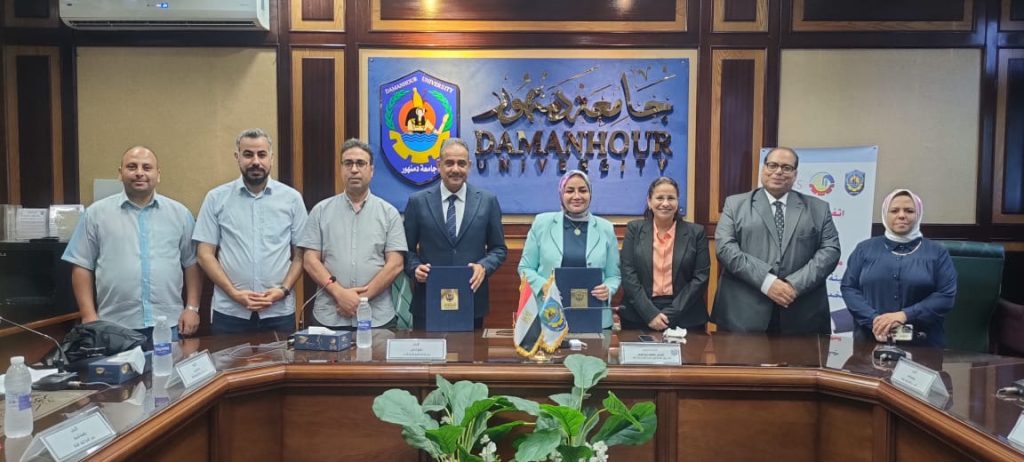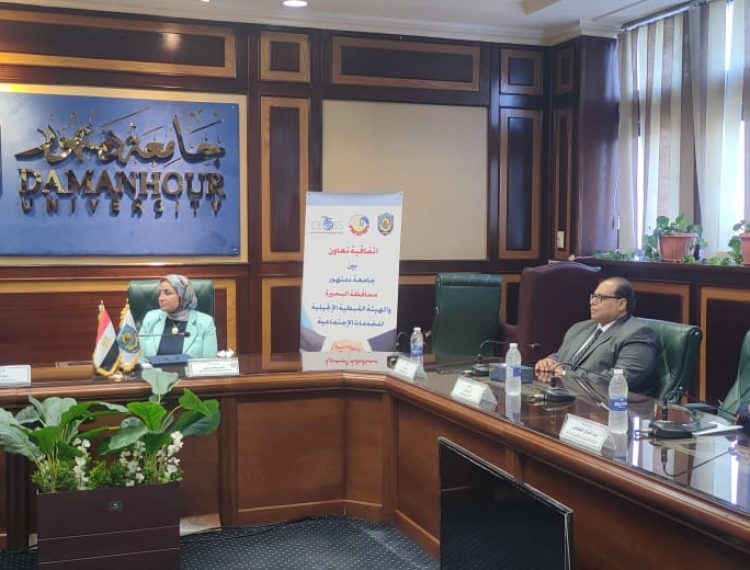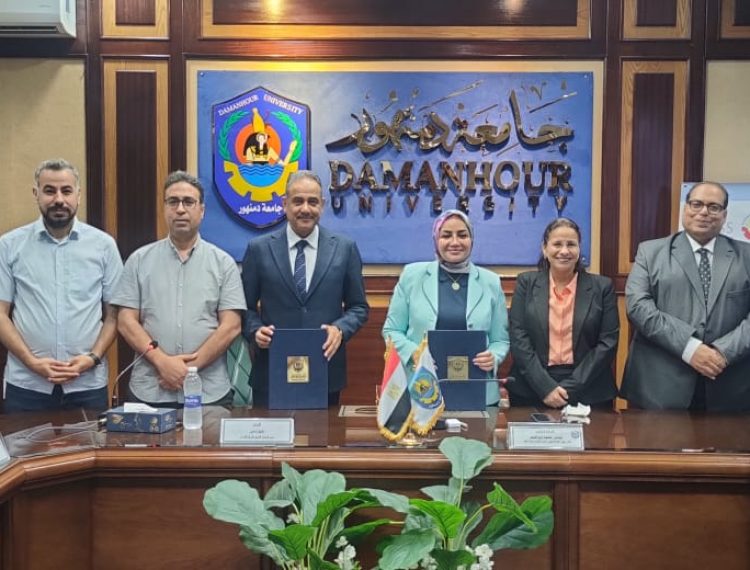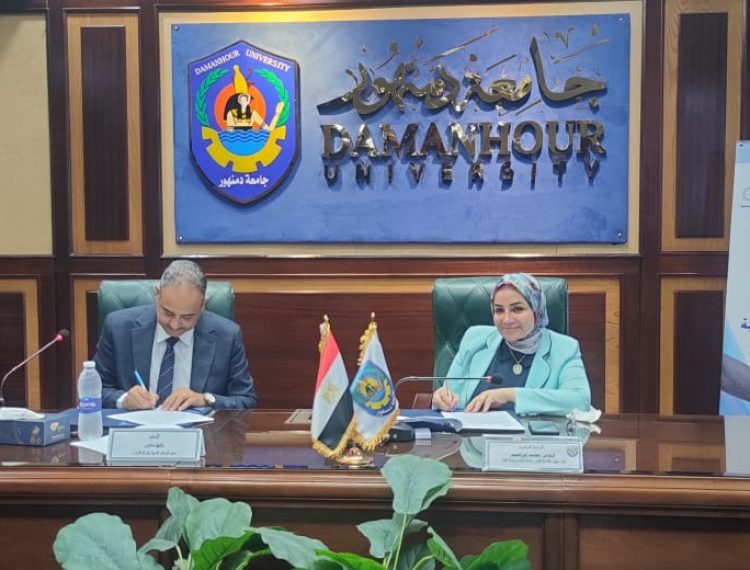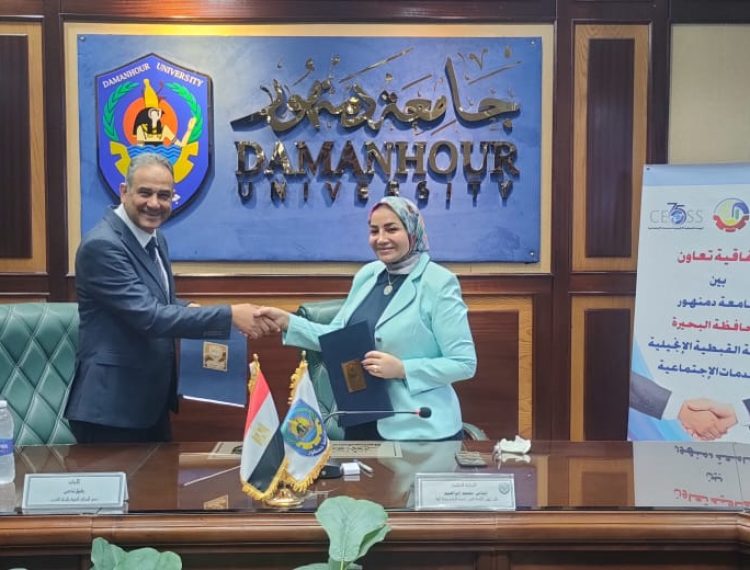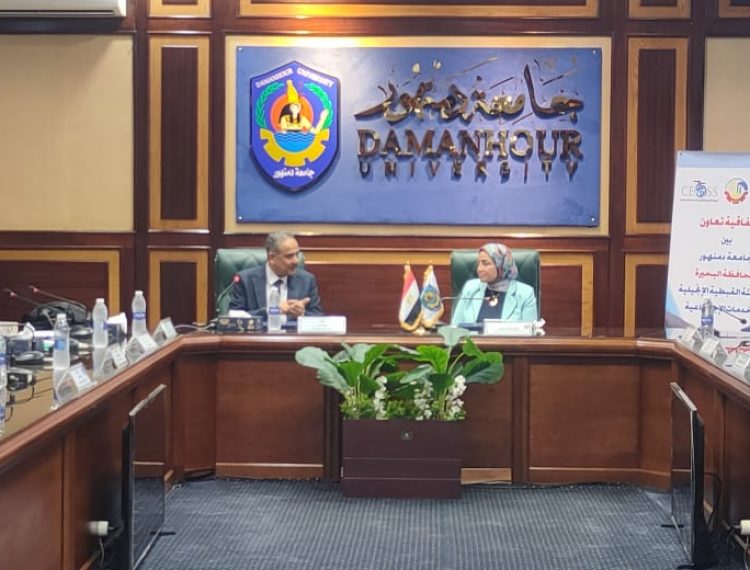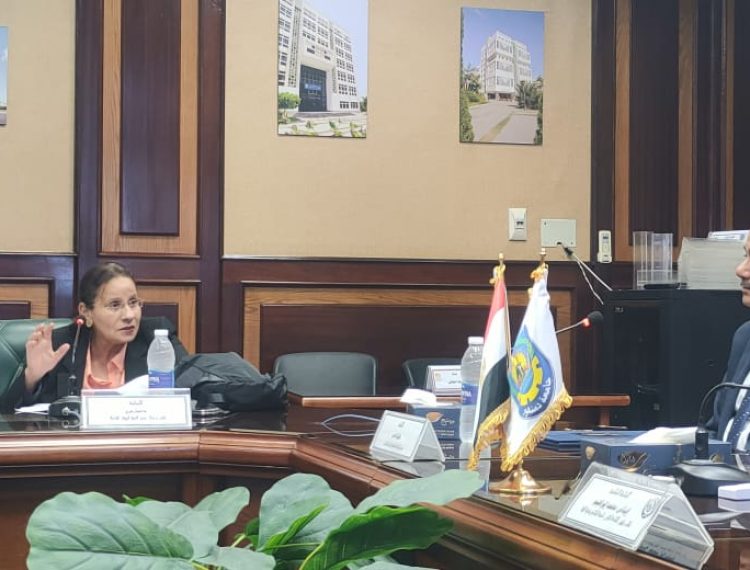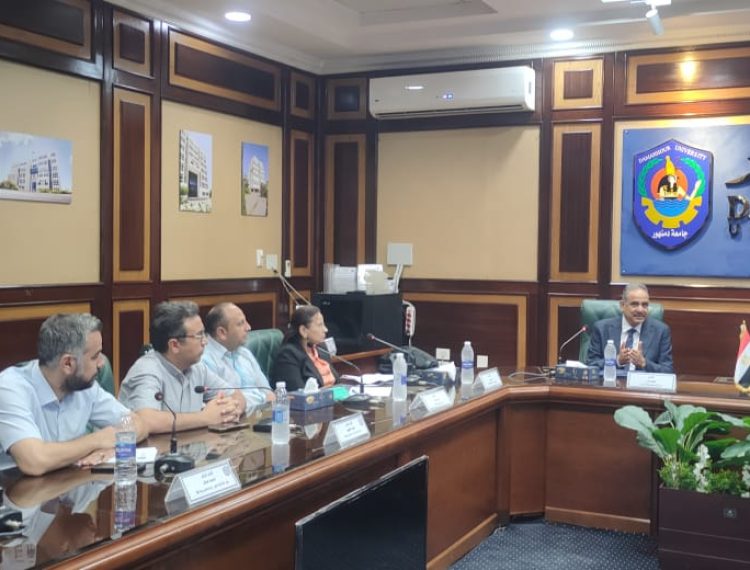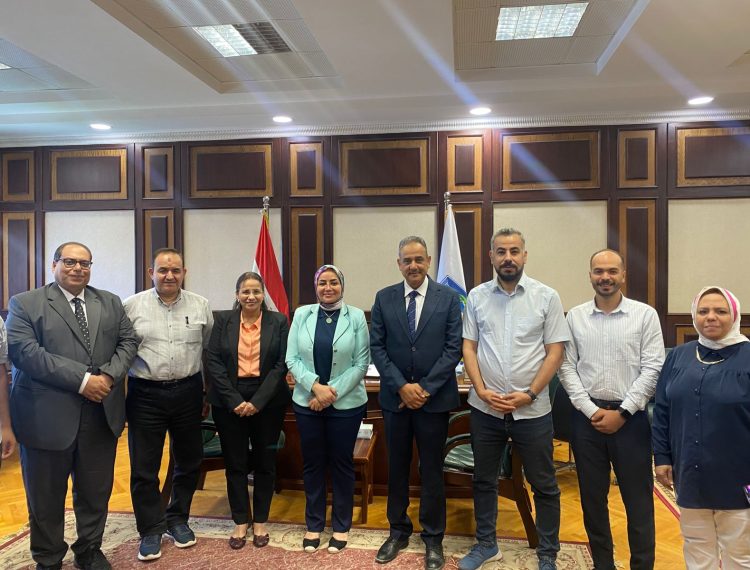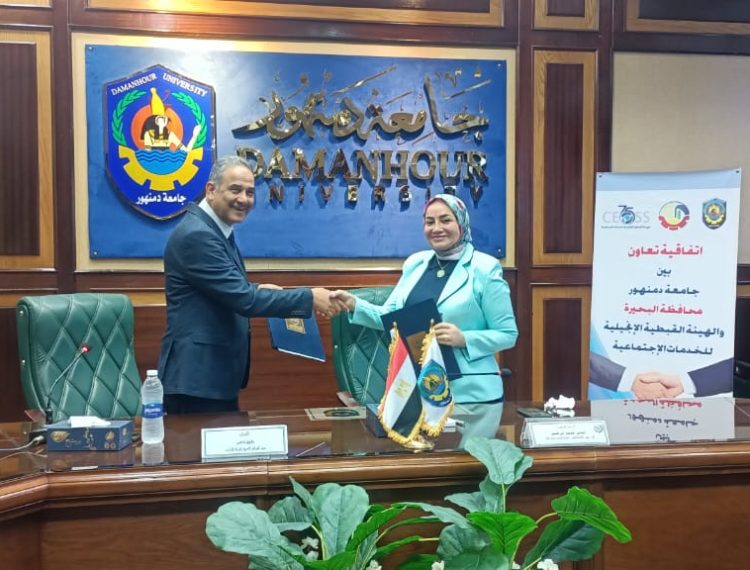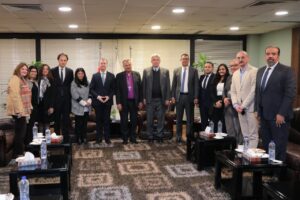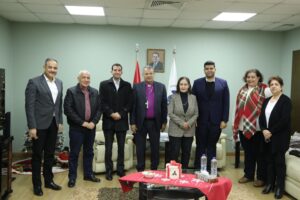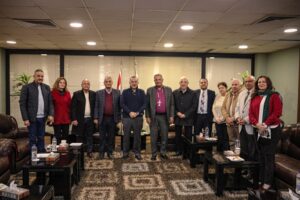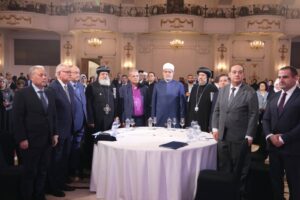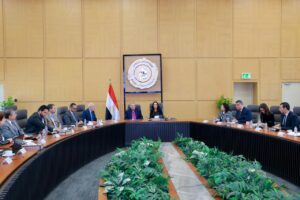The Coptic Evangelical Organization Signs a Cooperation Protocol with Damanhour University to Promote Environmental Awareness and Address Climate Change
———
As part of the Coptic Evangelical Organization for Social Services’ commitment to enhancing cooperation with academic institutions and civil society, the Organization’s Local Development Unit signed a cooperation protocol with Damanhour University. The aim is to deepen joint collaboration and build public awareness to preserve natural resources and address climate change.
The protocol was signed on behalf of Damanhour University by Professor Dr. Enas Ibrahim, Vice President of the University for Community Service and Environmental Development, and on behalf of the Coptic Evangelical Organization by Mr. Rafik Naguib, Director of Development Sites at the Organization. The signing ceremony was attended by Ms. Magda Ramzy, Acting Director of Integrated Rural Development, Mr. Raymond Rafaat, Deputy Director of Integrated Rural Development, along with the Organization’s Integrated Rural Development Coordinators, and the Vice Deans for Community Service and Environmental Development of the Faculties of Science, Engineering, and Agriculture at Damanhour University.
Professor Dr. Enas Ibrahim stressed Damanhour University’s keenness to expand the horizons of cooperation with civil society institutions in various scientific, research, and environmental fields. She pointed out that cooperation with the Coptic Evangelical Organization comes within the framework of the community service responsibility of the Community Service and Environmental Development sector, and aims to enhance efforts to raise awareness of climate change among university students, working together to achieve the Sustainable Development Goals.
For his part, Mr. Rafik Naguib expressed his delight at the signing of this protocol, affirming that the partnership with Damanhour University represents an important step towards expanding the scope of developmental work, especially in programs targeting the improvement of quality of life for the most vulnerable citizens in rural and urban areas. This will be achieved through developmental pillars that encompass economic, social, and environmental aspects.
The cooperation includes implementing activities and initiatives aimed at engaging youth in climate action, including the Natural Resources Management Improvement Project implemented by the Organization, as well as launching an innovation competition to address the water crisis—particularly irrigation water—through youth-led ideas and projects.

